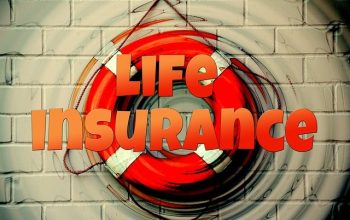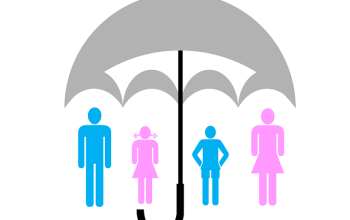businesses with employees must secure Employer's Liability Insurance to fulfill legal obligations for work-related injuries or illnesses. This insurance is distinct from General Liability Insurance, which covers third-party claims, and Professional Liability Insurance, for professional service-related claims. Small Business Insurance often integrates these core coverages, addressing the varied liability exposures businesses face. For broader protection, Commercial Liability Insurance is available, encompassing a range of liabilities beyond employee-related incidents. It's crucial to understand and combine these insurance types, including Public Liability Insurance and Product Liability Insurance, to ensure comprehensive financial protection against different types of claims. Adequate coverage under these policies not only complies with legal standards but also bolsters business resilience and confidence in operations. Small businesses should consider consulting with insurance professionals to tailor their Business Liability Coverage to their specific needs for complete risk management and compliance.
Employer’s Liability Insurance serves as a foundational pillar for businesses with workforce personnel, mandating coverage against workplace injury or illness claims. This article delves into the necessity of Employer’s Liability Insurance, highlighting its role in maintaining financial stability and ensuring compliance with legal obligations. It also elucidates the distinctions between this insurance and other forms of business liability coverage, including General, Professional, and Product Liability Insurance. For small businesses, understanding the nuances between these policies is crucial for effective risk management. We will explore how Employer’s Liability Insurance interfaces with Public and Commercial Liability Insurance to create a robust protection framework. Understanding the scope of this critical coverage not only safeguards your employees but also shields your business from potential financial burdens.
- Navigating Mandatory Employer’s Liability Insurance: A Critical Shield for Businesses with Staff
- Understanding the Scope of Employer’s Liability Insurance and Its Role in Workplace Safety
- Employer’s Liability vs. Other Business Insurance Types: General, Professional, and Product Liability Coverage Compared
- The Financial Safeguard: How Employer’s Liability Insurance Protects Your Small Business Against Work-Related Claims
- Comprehensive Risk Management: Integrating Employer’s Liability with Public and Commercial Liability Insurance Solutions
Navigating Mandatory Employer’s Liability Insurance: A Critical Shield for Businesses with Staff
navigating the requirements for Employer’s Liability Insurance is a critical aspect for businesses with staff, as it ensures compliance with legal obligations and financial security. This type of insurance is specifically designed to cover the costs associated with work-related injuries or illnesses sustained by employees, providing a safety net that protects both the company and its workforce. It is distinct from General Liability Insurance, which addresses third-party claims, and Professional Liability Insurance, which covers claims related to professional services. Businesses must also consider Public Liability Insurance to safeguard against claims arising from damage or injury caused to third parties, and Product Liability Insurance for potential defects or malfunctions in products sold or supplied. Small Business Insurance packages often bundle these essential coverages, catering to the diverse liability exposures that businesses face. Furthermore, Commercial Liability Insurance extends beyond employee-related incidents, offering comprehensive protection for a wide range of liability issues. Ensuring adequate coverage is not just a legal necessity but also a strategic decision that contributes to the overall resilience of a business, allowing it to operate with confidence and security in its operations.
Understanding the Scope of Employer’s Liability Insurance and Its Role in Workplace Safety
Employer’s Liability Insurance is a critical safeguard for businesses with staff, offering comprehensive coverage against claims arising from work-related injuries or illnesses. This insurance is specifically designed to protect employers from the financial repercussions of compensatory damages and legal defense costs associated with such claims. It encompasses a range of scenarios, including accidents, occupational diseases, and even psychological harm sustained by employees while performing their duties. Understanding the scope of this coverage is paramount for businesses to recognize their responsibilities towards their workforce and to ensure they are adequately protected.
The scope extends beyond mere physical well-being; it also addresses the potential for claims related to Professional Liability, Business Liability Coverage, Public Liability Insurance, Small Business Insurance, and Product Liability Insurance. These aspects are integral to a robust liability insurance package, which together with Commercial Liability Insurance, form a comprehensive risk management strategy. This ensures that employers are not only compliant with legal requirements but also proactive in safeguarding their operations against the myriad of risks present in any business environment. By integrating these liability coverages into their policies, businesses can operate with greater confidence, knowing they are equipped to handle employee-related claims, thereby promoting a safer and more secure workplace for all.
Employer’s Liability vs. Other Business Insurance Types: General, Professional, and Product Liability Coverage Compared
Employer’s Liability Insurance serves a distinct purpose within the broader scope of business insurance, which includes General, Professional, and Product Liability Coverage. Unlike other forms of liability insurance such as General Liability Insurance, which covers third-party claims arising from bodily injury or property damage due to the operations of a business, Employer’s Liibility Insurance is specifically tailored to protect against claims made by employees. This specialization is crucial because it addresses the unique risks associated with employee-related injuries or illnesses that occur during the course of their work.
On the other hand, Professional Liability Insurance, also known as Errors and Omissions (E&O) insurance, offers protection for businesses providing professional advice or services. It covers claims related to errors or omissions made by the business or its professionals that result in a financial loss to a client. This type of coverage is distinct from Employer’s Liability Insurance as it does not pertain to physical injuries but rather to the professional service provided. Similarly, Product Liability Insurance safeguards businesses against claims arising from defective products or services causing harm, which differs from Employer’s Liability Insurance in its focus on the product lifecycle rather than employee well-being.
Business Liability Coverage, encompassing General and Public Liability Insurance, typically covers a wide range of liability exposures that an enterprise may face, including those involving clients or the general public. While this category can offer some overlapping protection similar to Employer’s Liability Insurance, it is not a substitute for the latter since it does not provide comprehensive coverage for employee-related claims, which are specifically addressed by Employer’s Liability Insurance policies.
For small businesses, understanding the distinction between these types of liability insurance is critical for effective risk management. Commercial Liability Insurance can be broad in scope and may include some elements of the different liability coverages, but it is important to assess each type carefully to ensure that all potential risks are adequately covered. Employer’s Liability Insurance, while mandated for businesses with employees, is a testament to the importance of protecting both the financial health of the business and the well-being of its workforce.
The Financial Safeguard: How Employer’s Liability Insurance Protects Your Small Business Against Work-Related Claims
Employer’s Liability Insurance serves as a critical financial safeguard for small businesses, particularly in the face of work-related claims. This coverage is designed to protect your business against employee injury or illness claims that arise from their work duties. It ensures that even if your company is sued due to an employee’s claim, the associated costs—ranging from medical expenses to legal fees and compensation—are manageable. Without this insurance, a single claim could potentially deplete your small business’s resources, leading to financial instability.
Investing in robust General Liability Insurance, Professional Liability Insurance, Business Liability Coverage, Public Liability Insurance, and Product Liability Insurance within the umbrella of Commercial Liability Insurance can provide comprehensive protection. These policies can address various risks, from third-party claims to specific product-related issues that might affect your small business. By integrating these liability coverages into your small business insurance portfolio, you can mitigate the financial impact of legal actions and focus on the core aspects of running your business, such as growth, innovation, and customer satisfaction. It’s a proactive step towards ensuring your business’s resilience in the face of unexpected liabilities.
Comprehensive Risk Management: Integrating Employer’s Liability with Public and Commercial Liability Insurance Solutions
Integrating Employer’s Liability Insurance with broader liability coverage solutions is a prudent approach for comprehensive risk management within any business. Employer’s Liability Insurance specifically addresses the risks associated with employing staff by providing financial protection against claims related to work-related injuries or illnesses. This form of insurance ensures that businesses can fulfill their obligations to compensate employees without causing undue strain on their finances. When considering the full spectrum of potential liabilities, it’s important for small businesses to look beyond just Employer’s Liability and explore comprehensive liability coverage. This includes General Liability Insurance, which guards against third-party claims for bodily injury, property damage, and personal and advertising injury; Professional Liability Insurance (Errors & Omissions), which protects against claims of negligence or harm due to professional advice or services rendered; and Product Liability Insurance, which covers the risks associated with manufacturing or selling products that may cause harm.
Furthermore, Public Liability Insurance is crucial for businesses that interact with the public or other companies, as it offers protection against claims arising from accidents or damages that occur on business premises or as a result of business operations. Commercial Liability Insurance encompasses a range of liability risks and can be tailored to meet the specific needs of a business. By combining these insurance solutions, small businesses can create a robust risk management strategy that not only complies with legal requirements, such as Employer’s Liability, but also protects against a variety of potential claims. This holistic approach ensures that a company is prepared for all types of liabilities, safeguarding its financial health and operational continuity in the event of unforeseen incidents. It’s advisable for businesses to consult with insurance professionals to tailor their coverage to their unique operations, ensuring they have the most effective liability protection possible.
In conclusion, Employer’s Liability Insurance stands as a cornerstone in the robust edifice of business liability coverage, mandated for companies with employees and indispensable for those who value both their workforce’s well-being and their own financial security. As outlined in this article, it serves as a shield against the potential fiscal burden of employee injury or illness claims. This critical insurance is not an isolated necessity but part of a comprehensive risk management strategy that includes General Liability Insurance, Professional Liability Insurance, Business Liability Coverage, Public Liability Insurance, and Product Liability Insurance. For small businesses, in particular, integrating Employer’s Liability with other insurance solutions ensures a holistic approach to safeguarding against the diverse risks inherent in commercial operations. By understanding its scope and role within the broader context of liability insurance, businesses can navigate their responsibilities confidently and maintain operational integrity, thereby upholding a safe and responsible work environment.



